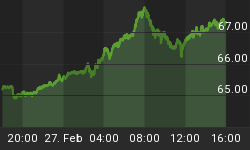Initial public offering (IPO) volume in the U.S. pales in comparison to what it was in the mid-1990s, and it’s not just red tape that’s bringing it down: Wall Street just isn’t that attractive anymore, particularly to Silicon Valley unicorns who have enough money and influence to snub the big bankers.
Spotify went public earlier this year without an IPO, without Wall Street, and without a care in the world, in what was arguably the biggest Wall Street snub ever.
Uber and AirBnb could be next, and they don’t need Wall Street, either. Together they have a valuation of more than $100 billion—all of it in the hands of the founders, private equity firms and venture capitalists.
The market has been working up to this for more than two decades—all the while, IPOs volumes have been declining sharply. Last year saw only 181 IPOs, which is 3-4 times less than what everyone was used to in the mid-1990s.
True, the first quarter of this year has given many hope that IPOs are regaining strength. A total of 43 IPOs fetching $15.6 billion in the first quarter—the most in three years, and nearly 60 percent more than the same period last year. Related: These Eight Market Trends Are At A Tipping Point
But it’s still not what it once was.
Venture-capital-backed companies raised $28.2 billion in Q1 2018, compared to $17 billion raised by IPOs in the same period, according to Wired magazine, which noted that this “represents an ongoing capital flow which Wall Street barely touches”.
Ordinary investors, are being snubbed, too, in the process. No IPO means they’re getting shut out of owning shares in unicorns that are leading the charge in our fastest-growing sectors. It also means that shareholder democracy is left by the wayside. For Wall Street, it means that bankers don’t get their hands on mouthwatering deals.
But it’s a new trend that doesn’t look ready to subside, even if we see broad de-regulation.
Here are 3 companies who are, and may, taking the unicorn by the horns without bothering to seek Wall Street’s help:
#1 Spotify (NYSE:SPOT)
Spotify bypassed the IPO process and listed its shares directly on the NYSE on 28 February. The streaming legend credited with saving the music industry wasn’t keen on paying the average $300 million in IPO costs—and it didn’t need to.
And we doubt it’s regretting its move:

(Click to enlarge)
Before it went public, Spotify was selling its shares this year in private transactions for $132. The year before, they went for $37.50 to $125 per share. At $132, it was claiming a $23-billion valuation—a number many laughed at before SPOT hit the market. No one’s laughing now. Certainly, not Wall Street, whose bankers didn’t get their 7-percent commission.
And in this case, the Wall Street snub was a harsh one. Usually, when companies IPO, it’s a big deal, with lots of bells and whistles, on Wall Street. There’s a tradition by which the CEO flies in to actually ring the bell when the listing goes public. Spotfiy’s CEO didn’t bother to show up, and viewed it as just another day, like any other.
As Spotify CEO Daniel Ek blogged on that day: “Normally, companies ring bells. Normally, companies spend their day doing interviews on the trading floor touting why their stock is a good investment. Normally, companies don’t pursue a direct listing. While I appreciate that this path makes sense for most, Spotify has never been a normal kind of company. As I mentioned during our Investor Day, our focus isn’t on the initial splash. Instead, we will be working on trying to build, plan, and imagine for the long term.”
#2 Uber Uber is planning to go public sometime in 2019 as far as anyone knows, and Wall Street is salivating because a recent deal with SoftBank Group Corp. put Uber’s valuation at around $54 billion. And it might have even been higher earlier this year because it was valued at $72 billion in February, during a settlement between Alphabet’s Waymo and Uber.
It’s not even profitable yet and doesn’t expect to be prior to 2022—but that’s apparently not a problem for today’s Silicon Valley IPOs. Wall Street seems to be buying the promise of profit pretty easily these days.
The rules just aren’t the same anymore.
So, could Uber skip the IPO and go public directly? Why not? But, for now, we’ll just have to speculate.
Wired notes that Uber borrowed $1.25 billion directly from non-banks recently, bypassing Wall Street. So, Uber is losing quite a lot of money still, and regulators don’t like lending under these conditions. But this is exactly the power of the Silicon Valley unicorn of today: They can still raise funds privately, even when they’re in the red—no massive Wall Street banking fees necessary.
#3 AirBnB
Late last year, AirBnB was valued at $31 billion, and word from the CEO as of last month is that they’re preparing to go public. It’s a story similar to Uber’s, with almost $1.6 billion raised by private capital since 2014.
Related: Markets Rebound As Trump Plays Down Trade War
But they probably won’t be going public this year, according to CEO Brian Chesky. “Our primary focus is becoming a 21st-century company and advancing our mission. We’re working on getting ready to go public and we will make decisions about going public on our own timetable,” he said in a company statement.
In mid-March, Chesky said they were probably halfway through the “project” .
As Chesky suggested, Unicorns want more control—and unprecedented access to private capital is giving it to them, so they can one-up Wall Street and Wall Street’s high-paid bankers.
From Wall Street’s perspective, the tech unicorns are a dangerous threat to their power and influence, not to mention their wallets.
By Tom Kool for Safehaven.com
More Top Reads From Safehaven.com:
















